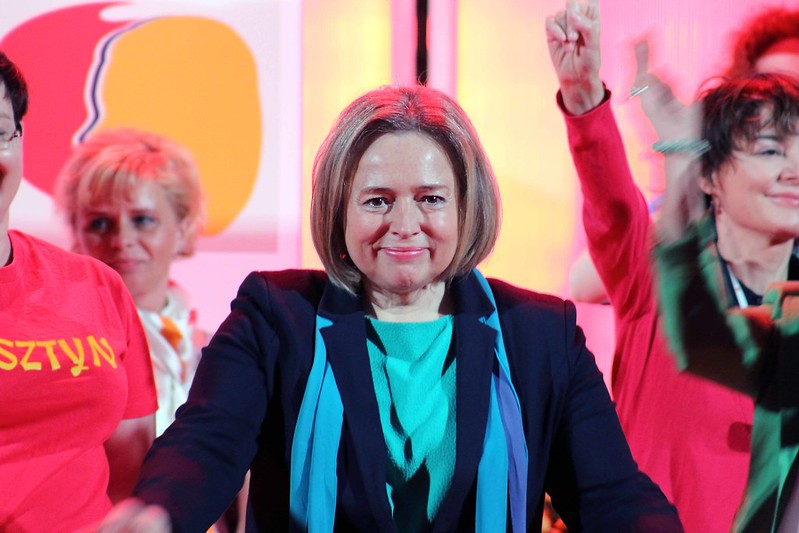“Success of The Left’s female MPs!” This was how Wanda Nowicka, a member of parliament from the left-wing alliance, greeted a decision to allow feminine forms to be used to refer to MPs on Sejm stationery.
“From today, all female members of parliament who would like to [can] have parliamentary headed notepaper and envelopes printed with the word posłanka,” she continued.
Nowicka was referring to the feminine form of the word poseł, or member of parliament. In an interview with Polsat News, she explained that the decision was the result of a meeting between female MPs from the left-wing alliance and Elżbieta Witek, the speaker of the lower house of parliament.
Sukces posłanek @__Lewica! wszystkie posłanki, które sobie życzą, od dziś do korespondencji mają druk sejmowy i koperty z napisem posłanka @gazeta_wyborcza @tvn24 @gazetapl_news @PolsatNewsPL @PAPinformacje @TOKFM_NEWS @AnitaKDZG @M_Prokop_P @FalejMonika @Pawlowska__M @KotulaKat
— Wanda Nowicka (@WandaNowicka) November 25, 2019
The controversy over the use of feminine forms, or so-called “feminatives”, has been rumbling since prior to the inauguration of the new parliament earlier this month, when The Left submitted a request to the Chancellery of the Sejm for feminine forms to be used in official documents, voting cards and name plates in the plenary chamber.
According to Nowicka, it remains an open question whether female MPs will be allowed to have the posłanka form on the name plates marking their seats. “I believe it is on the right track, and I believe that in some time I will be able to inform of a further success,” she said, adding that “it is a very complex issue.”
In Poland some women prefer to use feminine forms of job titles. Perceived excesses have been the subject of criticism and mockery, such as in 2012, when then minister of sport Joanna Mucha declared that she preferred to be called Pani Ministra (instead of the standard minister).
Critics question the importance of the dispute, accusing the MPs for wasting time on what they see as a trivial issue at the expense of more pressing problems.
But Nowicka, a deputy speaker of the Sejm between 2011 and 2015, said that “use of feminine forms is extremely important to provide the best reflection of reality. In reality there are both male MPs and female MPs.”
“It has enormous symbolic significance, because it means that the visibility of women in politics is much greater. Not only will that help us at work, but social awareness will increase so that young girls and women see themselves as potential activists, politicians, and think in terms of having the right to function on an equal basis in the public space,” she added.
The question has also triggered a linguistic debate over what the correct feminine form should in fact be. While posłanka has long been the standard form, according to the linguistics professor Jerzy Bralczyk, quoted in a report for state television channel TVP’s news programme, poślica would be more correct. Posełka has also been suggested as a preferable form.
Although some see “exaggerated” feminine forms as a modern phenomenon, Polish has a long history of female versions of job titles.
According to the writer Jacek Dehnel, such forms are natural in Polish, and the debate about noun endings is in fact about “the place of women in society and their subjectivity”. Feminatives do not bother anyone in words such as “cleaner” and “servant”, Dehnel notes, but only when used for positions of authority such as “professor” or “prime minister”.
Często ostatnio słyszę, że spór o feminatywy to jakaś dęta, nieistotna sprawa, temat zastępczy i nie bardzo wiadomo,…
Opublikowany przez Jacka Dehnla Czwartek, 31 października 2019
Main image credit: Flickr / Lukas Plewnia (under CC BY-SA 2.0)

Ben Koschalka is a translator, lecturer, and senior editor at Notes from Poland. Originally from Britain, he has lived in Kraków since 2005.




















